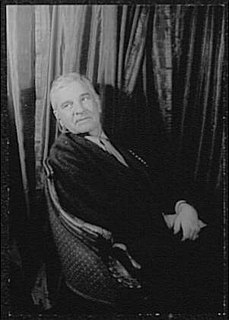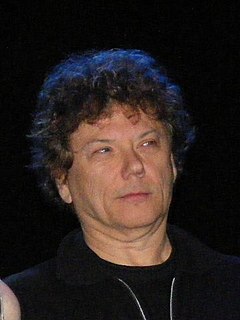A Quote by Malcolm Cowley
The germ of a story is a new and simple element introduced into an existing situation or mood.
Related Quotes
There are, I think, four distinct types of weird story: one expressing a mood or feeling, another expressing a pictorial conception, a third expressing a general situation, condition, legend or intellectual conception, and a fourth explaining a definite tableau or specific dramatic situation or climax.
A short story is confined to one mood, to which everything in the story pertains. Characters, setting, time, events, are all subject to the mood. And you can try more ephemeral, more fleeting things in a story - you can work more by suggestion - than in a novel. Less is resolved, more is suggested, perhaps.
The color palette grew as the story progressed. The 1920's sharecroppers were muted and neutrals, the 30's and 40's introduced burgundy to the neutral palette. The 1950's introduced green, black and denim blue, the 1960's introduced orange and heavier more saturated color, the 1970's introduced more primaries, and the fashion palette became more recognizable as a contemporary one from there.
Too many escape into complexity these days. For it is an escape for persons to cry, when this question of the equality of peoples is raised in India or in our own South, 'Ah, but the situation is not so simple.' ... no great stride forward is ever made for the individual or for the human race unless the complex situation is reduced to one simple question and its simple answer.
If something produces an undue amount of pleasure or undue amount of displeasure, it's going to be judged differently and it's going to be introduced in your narrative with a different size, with a different development. So that is the next element to superimpose on the sequencing element. And in fact, that element is so powerful that very often it can trump the sequencing event, that the sequencing aspect.
Any change of government which has to be introduced should be one which men, starting from their existing constitutions, will be both willing and able to adopt, since there is quite as much trouble in the reformation of an old constitution as in the establishment of a new one, just as to unlearn is as hard as to learn.
I try to weave a secret into each plot. It's the thread that holds the rest of the story fabric together. In fact, it's the reason for the story. I hint at the secret early on. Immediately I want the reader to get the feeling that something here isn't quite right. It helps maintain the suspense if a puzzling element is introduced in the first few pages of the book, but the answer isn't revealed until the final ones. Hopefully, readers want to know what the heck is really going on, and it's the desire to find out that keeps them turning pages.




































